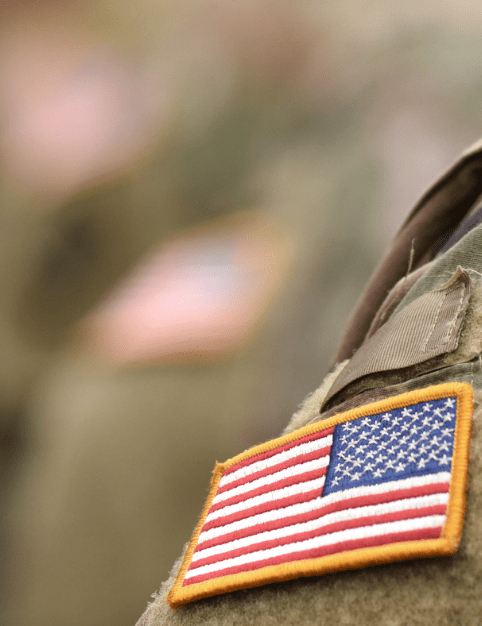Post Traumatic Stress Disorder (PTSD) and Traumatic Brain Injury (TBI) are the signature injuries of veterans from OIF and OEF. A recent report from the Institute of Medicine, the health division of the National Academy of Sciences, predicts a flood of PTSD and TBI cases from the wars in Afghanistan and Iraq. According to Sandro Galea, an epidemiologist and physician who helped produce the Institute of Medicine Report, “we are on the cusp of a wave of PTSD.” The problem is that both the Veterans Health Administration and the Department of Defense are apparently unprepared to treat veterans who will be part of the wave of PTSD and TBI. One aspect of lack of preparation is that neither VHA nor DoD know what sort of treatment works.
In fact, many veterans report that PTSD treatment currently offered is ineffective. The American Legion hired Data Recognition Corporation to survey 3,100 veterans about their experience with PTSD treatment. While the veterans do not represent a statistical sampling, the results are surprising. Only 16% saw their PTSD and TBI treatment as being clearly beneficial. Around 16% felt that their PTSD or TBI became worse during treatment. Roughly 25% thought that treatment was ineffective one way or the other. This group thought that treatment neither improved nor aggravated their PTSD or TBI. This anecdotal evidence is bolstered by the Institute of Medicine Report which found that both the DoD and VA lack a “consistent, well developed, evidence based” system for treating PTSD and TBI.
The American Legion report also discovered that many veterans believe their treatment relies much too heavily on prescription drugs. Many veterans who were surveyed had been prescribed 10 or more types of medication. As a result of dissatisfaction with the lack of improvement and the kind of treatment they have received — pharmaceutical based treatment, many veterans have quit treatment programs. Jeffrey Greenberg, senior research director for Data Recognition Corporation, summed up the situation by saying:
if you don’t get better over a period of treatment, you’re going to feel worse about yourself.
Improving PTSD and TBI Treatment for Veterans: Evaluation and Communication Needed
To prepare for the wave of PTSD and TBI cases, the first step would be to evaluate the different kinds of treatment. In September last year, the DoD directed all service branches to survey service member improvement, or the lack of improvement, while in treatment. The RAND Corp. has been asked by the service branches to collect data on the quality of counseling at military hospitals. The absence of any clear information about the effectiveness of treatment is disheartening because efforts and resources for PTSD and TBI treatment have dramatically increased since 2004.
In 2004, the DoD expenditure for PTSD treatment was $30 million. In 2012, the expenditure was just short of $300 million. In 2012, the VHA spent over $3 billion in PTSD treatment. So, despite drastic increases in resources, real progress has not materialized. The dearth of progress appears in other ways. The Institute of Medicine report showed that one-third of VA hospitals and clinics report insufficient mental health staffing. Patients have waited on average over seven weeks to see a PTSD counselor. The wait for enrollment in an intensive treatment program averages over eight weeks. Another lapse is communication between the DoD and VA.
The poor communication between DoD and VA has been a chronic problem. Over the past decade, VA and Department of Defense have spent around $1 billion to plan for an integrated digital medical records system. In 2009, President Obama promised to implement the plan and achieve the goal of a common system. Rep. Phil Roe, Republican from Tennessee, worries that ten years from now VA and DoD will be no closer to achieving the goal of an integrated medical record system.
Accumulating evidence continues to show that the actual cost of OIF and OEF will increase as time passes. Although combat troops have withdrawn from Iraq and the war in Afghanistan is winding down, the compensation awards for PTSD and TBI will apparently increase unless DoD and VA learn how to treat PTSD and TBI more effectively. For more information, visit the June 24, 2014, edition of The Army Times which is available at: www.armytimes.com.
Are You a Veteran Seeking Disability Compensation for PTSD or TBI?
Veterans suffering from disabling service-related PTSD or head injuries deserve effective treatment in order to get their lives back on track. If you or a loved one is still suffering disabling symptoms and need assistance applying for VA disability compensation for PTSD or for TBI, please don’t hesitate to contact our veterans’ disability advocate or complete or free online case evaluation form. Many of the advocates at Veterans Help Group are veterans ourselves, and we have personal ties to what veterans go through when they are struggling to get their benefits. Our purpose is to make everything as easy as possible.

How to Speed Up Your VA Disability Claim
How to Speed Up Your VA Disability Claim The VA says that in January of 2024, the average time for...

How to Apply for VA Disability Compensation
It's one thing to know how to apply for VA disability compensation. It's another to understand the...

What is the VA DBQ?
What is the VA DBQ? A VA Disability Benefits Questionnaire (DBQ) is a form used to convey...





